Saving mental health
How the joyful distractions of online entertainment helped easing social isolation during the pandemic
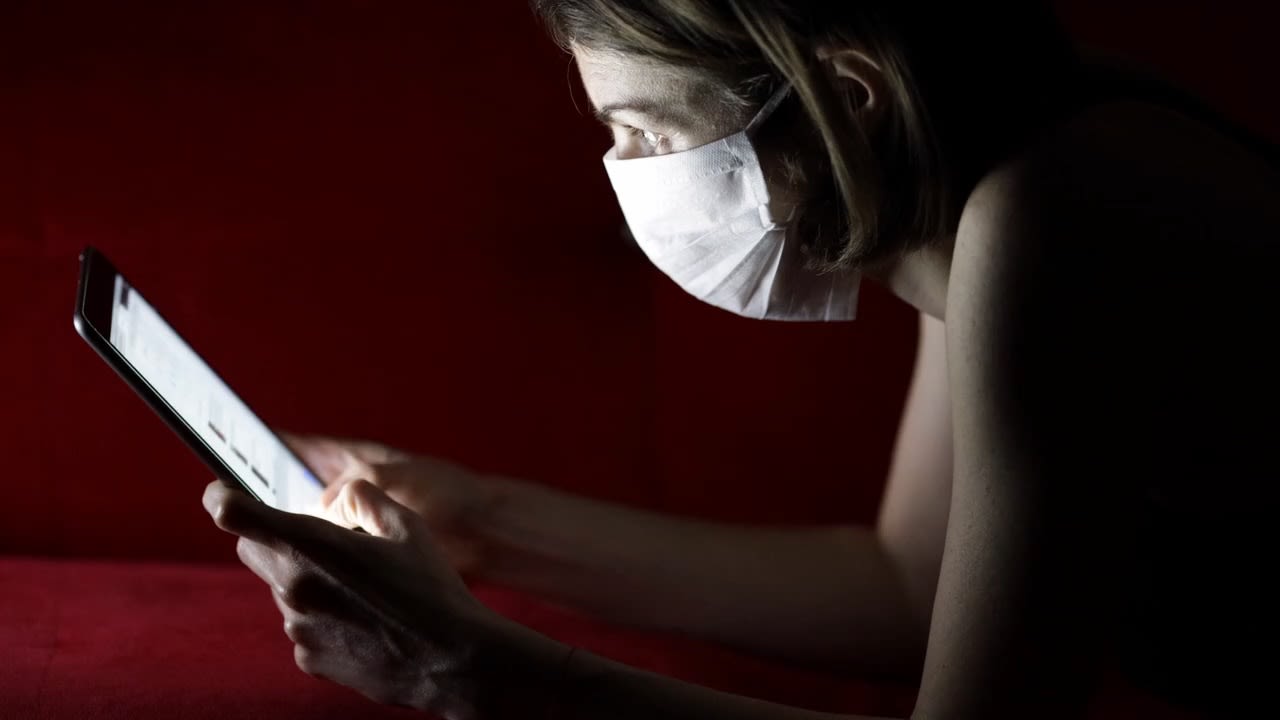
How our life changed forever
It’s not even the coveted end of the year 2020, but the past 9 months felt like an eternity for most of us. When on the 31st of December 2019 Chinese authorities confirmed in the media that they are treating dozens of people with a novel virus that cause pneumonia we never thought a thing and happily cheered for the incoming new year. When in January thousands of people got infected and we saw the first worrisome live coverage in the news about collapsing people and doctors in protective equipment, it was still some faraway country’s scary, but own problem. But when that dangerous intruder’s head peeked in Australia’s door on the 19th of January in the face of a traveller that just came back from Wuhan, we suspected that things will get out of hand really quickly.
And so they did. When in the last week of February out of precautions, I started wearing face masks for my shopping trips to the local stores in Melbourne, I felt like an alien and people looked at me scornfully. As a multiple pneumonia sufferer, I know too well the feeling of gasping for air, and I felt frightened. Still, some people were just about to board the Ruby Princess cruise ship with the trip of their lifetime in Sydney. The rest is history as we say and Australia and it’s never sleeping cities fell into a standstill coma on the 20th of March.
Along with the rest of the economy, the one thing that ceased to exist is live art and entertainment. There were no more theatres, no more movies, no more concerts and sports events, no more clubbing and nothing that so far proved to relax the never-ending anxiety of city dwellers.
As we closed ourselves in the willy - nilly comfort of our own four walls in the first 50 days of the pandemic in Australia, many industries started to fight for their existence in never before seen tactics. Online shopping in the retail and food industry began to flourish as a must- have necessity, but many other business enterprises sank to their demise.
For the delight of many, the one entity that quickly got a grip on the situation was the art and entertainment industry. Actors, musicians and producers formed allies created “live” streaming entertainment from the comfort of their own homes and as many of us first I welcomed the personal touch of the celebrity isolation videos, still I rather forget the ones like the singer Madonna in her bathtub or the shiny white toilet in the middle of Demi Moore’s living room.
Anyway, there were plenty of positive examples, and I definitely made up years worth of recorded live theatre and concert events from the comfort of my own couch. And, although I instead prefer the night out and dressing up nicely for a concert on a balsamic summer night in Melbourne, I think I will miss it when online streaming ceases at the other end of this pandemic. Or will it ever?
Let’s see how the industry performed during the pandemic
Almost 1 million Australians have signed up for subscription TV services since late March, according to data from Roy Morgan.
Netflix is definitely dominating the Australian market, but the rest of the available entertainment brands such as Disney +, Stan, Amazon Prime were also experiencing an average of 30% increase in their subscription services just in the past 8 months.
Here is a useful chart from the Visualcapitalist of how different generations consume media in the age of COVID 19
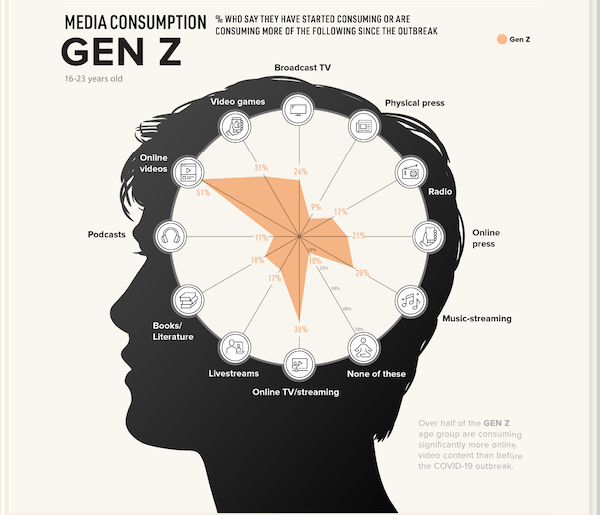
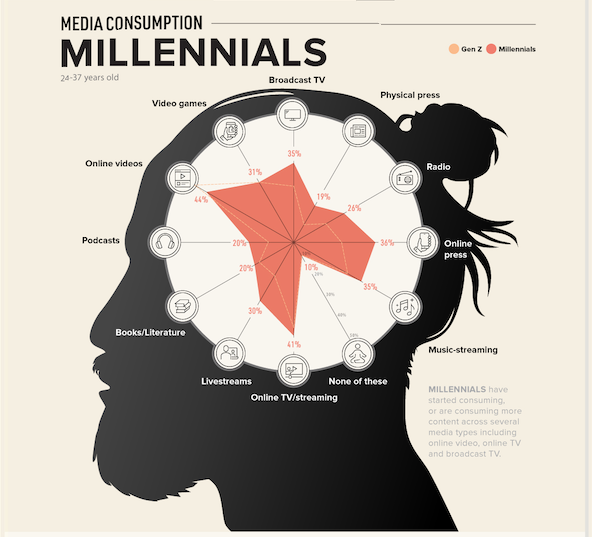
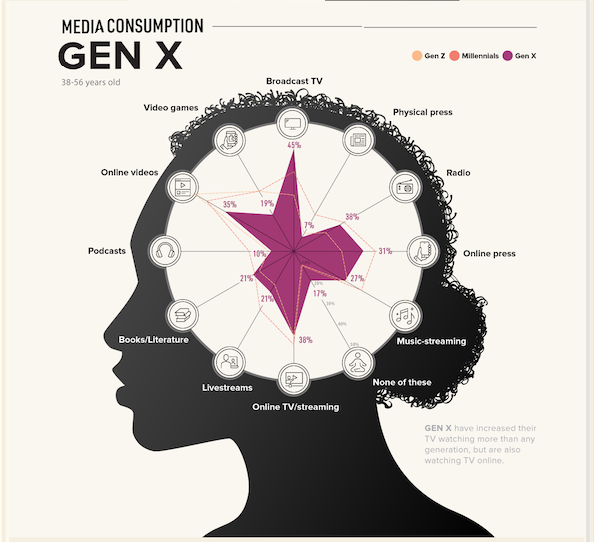
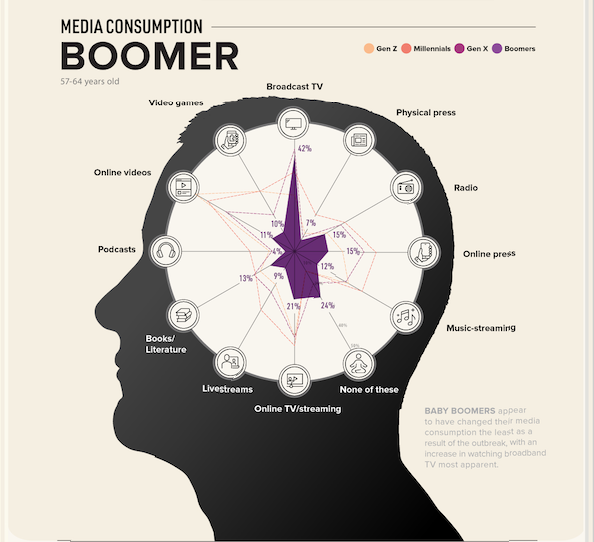

The plague doctor
The plague doctor

INDUSTRY PERFORMANCE
As Australians confined in their homes, an estimated 5.6 million people signed up to a combined streaming home entertainment (SVOD) services, which includes online gaming, film and music streaming services according to the Telsyte Australian Entertainment Subscriptions Study 2020. It is not just adults of course, but kids too were the most prominant users, and subscribers of online gaming and this type of entertainment experienced the most significant growth in subscriptions which more than doubled to 2 million at the end of June 2020.
Of course, binge-watching for a couple of weeks can have it’s own side effects. I noticed that when tension is rising and there is more stress around me, like the COVID pandemic I reach for content that is effectively direct my attention away from the unfolding situation. Things like action movies or romantic comedies are my go-to solutions, but even I had enough of them after three weeks. So I reached for something else, such as live theatre, cooking shows or virtual travel. And I am not alone. According to the data of GlobalWebIndex, users were looking for different types of content, and many have discovered new genres they never thought they would enjoy.
Entertainment companies quickly adapted to the new state of affairs with more people streaming, gaming and listening to music than ever before. New players appeared on the market, such as Quibi which is a new type of film channel made for mobile devices. The short, maximum 5 to 10 minute long episodes advertised as “Quick Bites. Big Stories” are really made for the attention span of the incoming generations.
We also have to mention, among the big brand names, our own home- brewed on demand and free - television channels and the countless theatres, concert halls and sporting institutions all around the globe which are really brought the world into our living rooms.
Contemporary Arts Media - Artfilms offers more than 2000 films for arts education and arts practitioners. The unique collection originates from Australia, UK, USA, Germany, Denmark, France, Hungary, Canada, Switzerland, Pakistan, Indonesia, Africa and Japan. Their subscribers are from all corners of the world. They also produce films and are often involved in new productions by providing guidance and support to artists and filmmakers.
I was asking the founder and owner of Artfilms - Kriszta Doczy of the company’s experiences during the pandemic. I was most interested in if people were streaming more, and I also asked Kriszta if she sees the future of online art film and art entertainment.
Apart from a binge-watching coma, let’s see if it offers any benefit when it comes to depression and anxiety due to social distancing measures.
Does online entertainment help to ease anxiety during the pandemic?
Home entertainment plays a significant role in keeping us occupied. With students spending most of their past months with remote learning from prep years to adult learners and employees moved to the home office, there’s really no escape from the online world anyway. As a die-hard habit, we also turn to some form of screen at the end of the day to unwind. So does it really help us to relax and unwind or it is just an illusion.
To find out about different experiences, I asked a few people how much online entertainment they consumed during the lockdown and what do they think about the effect it had on them, and whether it had “social distancing anxiety” easing impact or rather the opposite.
These answers, of course, are far from representative. While in ordinary circumstances, every psychological advice contains digital detoxification - like taking a break from watching TV or consuming too much digital entertainment, the pandemic situation created a whole new challenge. In the peak of the pandemic, most cities and countries imposed local lockdowns with harsh curfews, which means we are basically locked to our sofas, so no wonder that one of the ways which we can cope is by watching something light that takes our minds off from constant worrying which then leads to anxiety.
If you consumed too much television don’t feel guilty, it’s a perfectly normal thing. We all did. At the start of the pandemic, we all unconsciously glued ourselves to news channels watching every snippet of information we can get. This is because when we try to feel more in control of our lives, we seek certainty but sadly, it is actually making our anxiety worse. Watching the news throughout the day or repeatedly checking our social media feeds for the latest updates is only comforting in the short run because it feels like we are taking steps to be informed, to reduce our anxiety, but we actually reach the opposite effect.
Like with everything, moderation is the key. Choosing the type of entertainment we consume and how much we consume makes a huge difference. Richard Colwill, the spokesman for the mental health charity SANE, tells NME that television, more specifically rewatching shows, can be beneficial towards helping to alleviate anxieties and worries during a lockdown.
He adds; “Watching something comforting and familiar on television can be helpful during this period of uncertainty and anxiety,” he says. “Nostalgia is a powerful thing, and it can help to connect us to more normal, happier times. In short, if it works for you then great.”
If you think it is just silly and watching TV or films can only mean wasted time, I can assure you there is something called Reel Therapy “Cinematherapy” or CT in short in modern psychology. According to Stuart Fischoff professor, movies are capable, it is believed of providing quicker access to suppressed, even repressed problem areas than either books or other printed material. Research shows that, in general, there is much greater affective arousal by films than by print. This arousal leads to greater attention to problem areas and possibly greater and quicker insights into these problems than were achieved by traditional talk therapy alone.
While you think it will be a good excuse from now on to indulge yourself in hours and hours of binging, in Cinematherapy, therapists choose and assign specific films to clients, based on their interpretations of films having specific therapeutic value.
If watching TV is not your bread and butter, as a related scientific exploration, the theatre has a significant role in anxiety management. Drama Therapy has been long part of the choice of treatment plans for specific stress management techniques. According to the Drama Therapy Association, drama therapy is the intentional use of drama and/or theatre processes to achieve therapeutic goals. Drama therapy is an embodied practice that is active and experiential. This approach can provide the context for participants to tell their stories, set goals and solve problems, express feelings, or achieve catharsis. Through drama, the depth and breadth of inner experience can be actively explored, and interpersonal relationship skills can be enhanced.
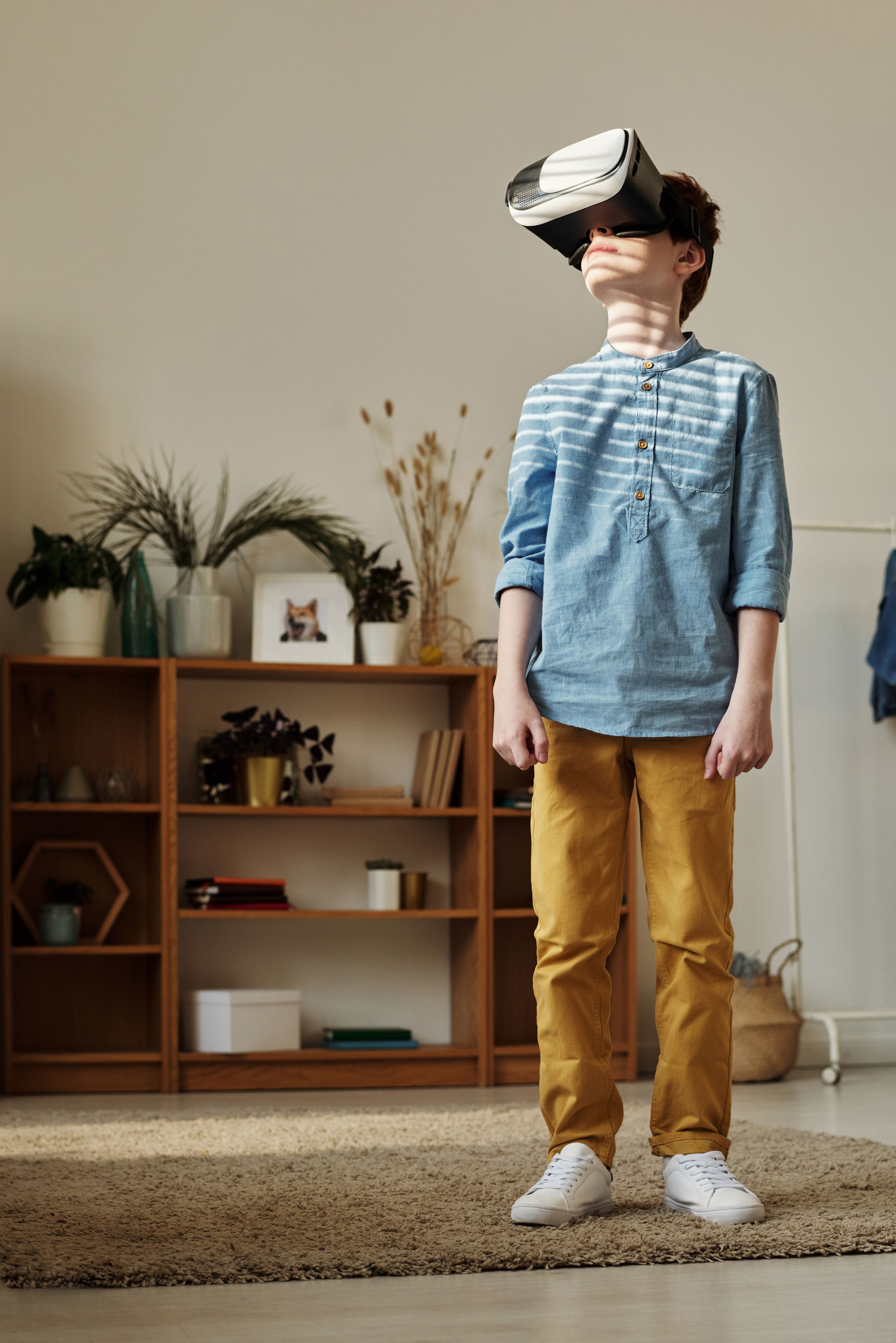
Some say VR gaming will be more popular than ever
Some say VR gaming will be more popular than ever
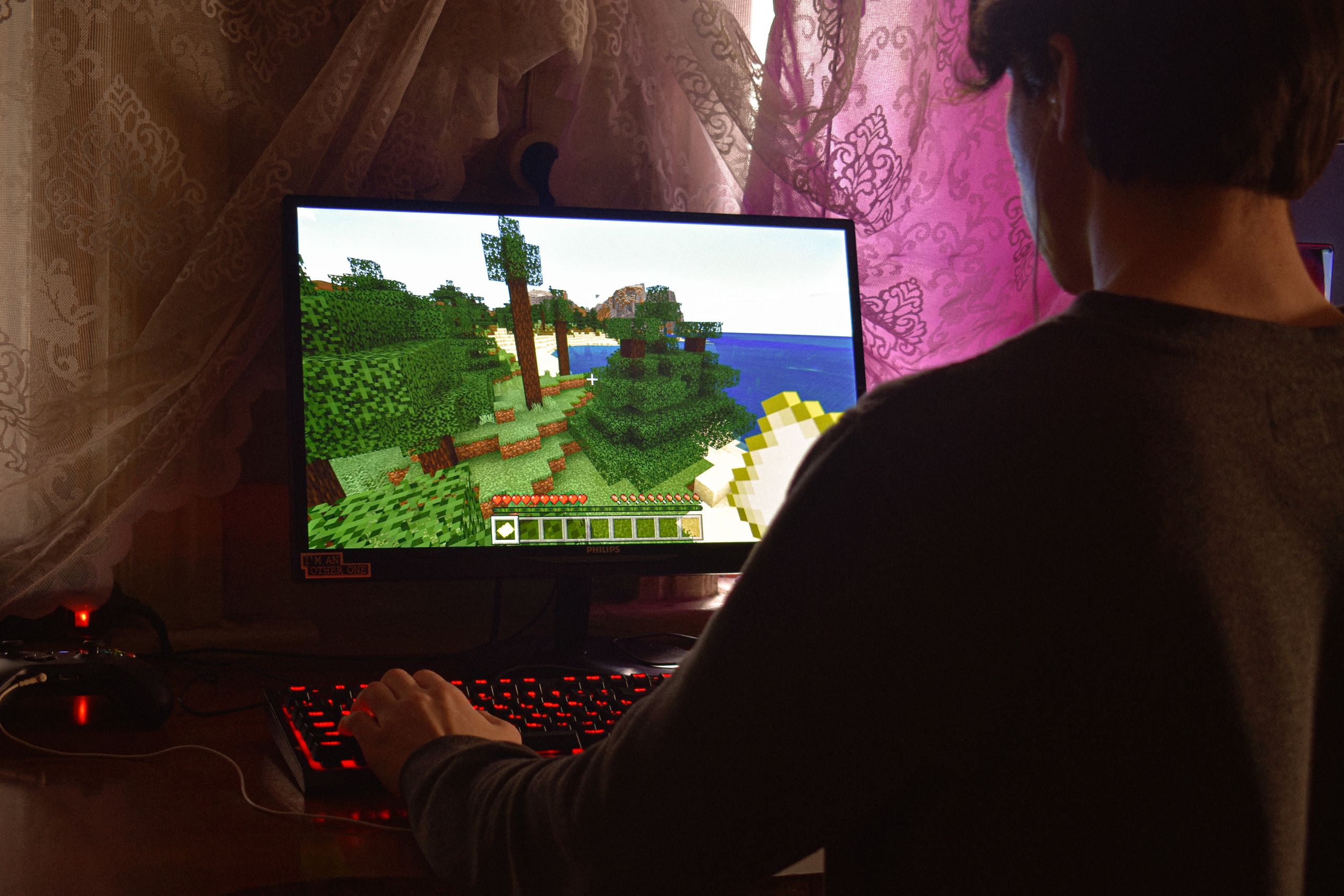
Teenagers turn for comfort to their online gaming environments
Teenagers turn for comfort to their online gaming environments
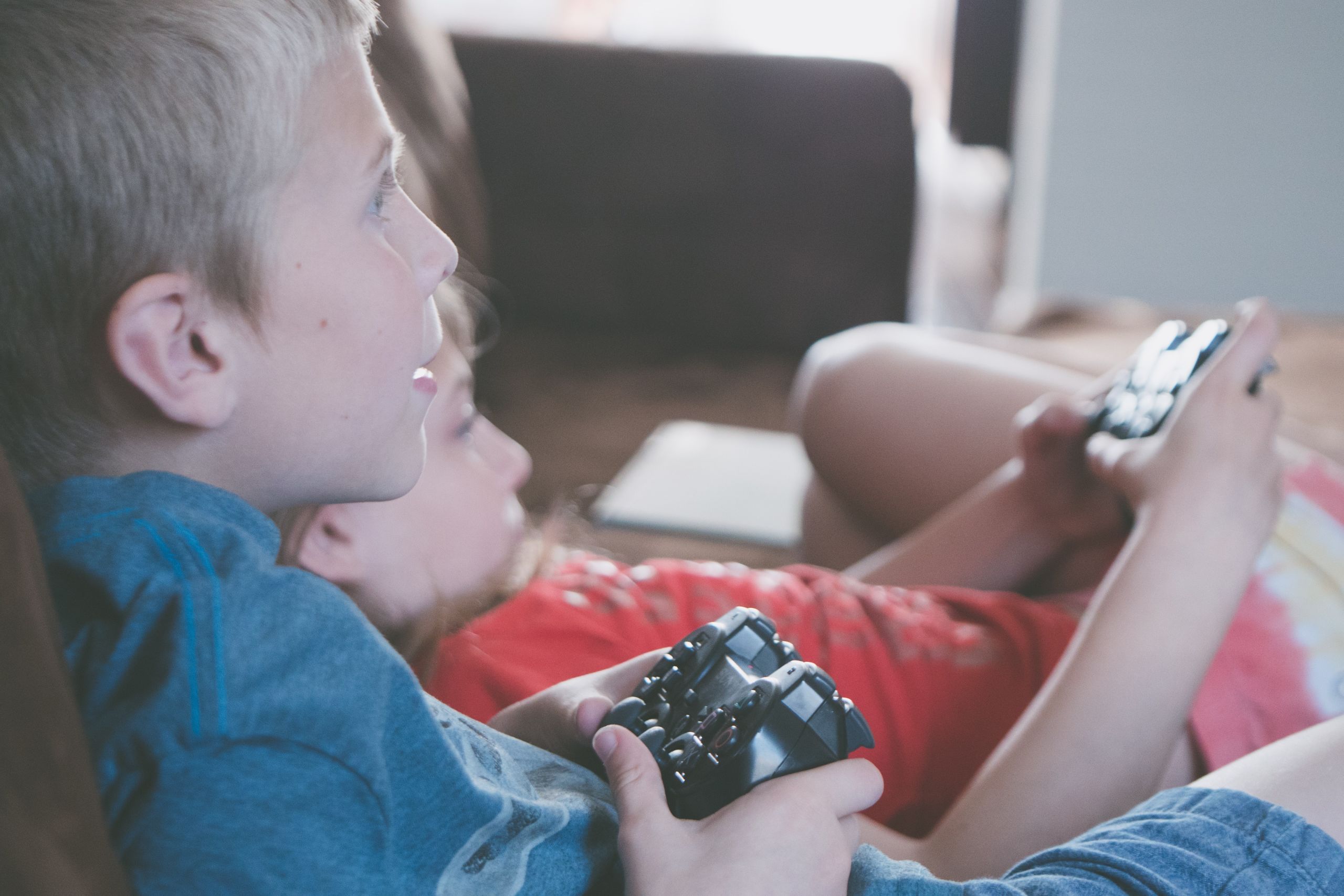
The joy of playing together during a lockdown, can be useful for smaller children too
The joy of playing together during a lockdown, can be useful for smaller children too
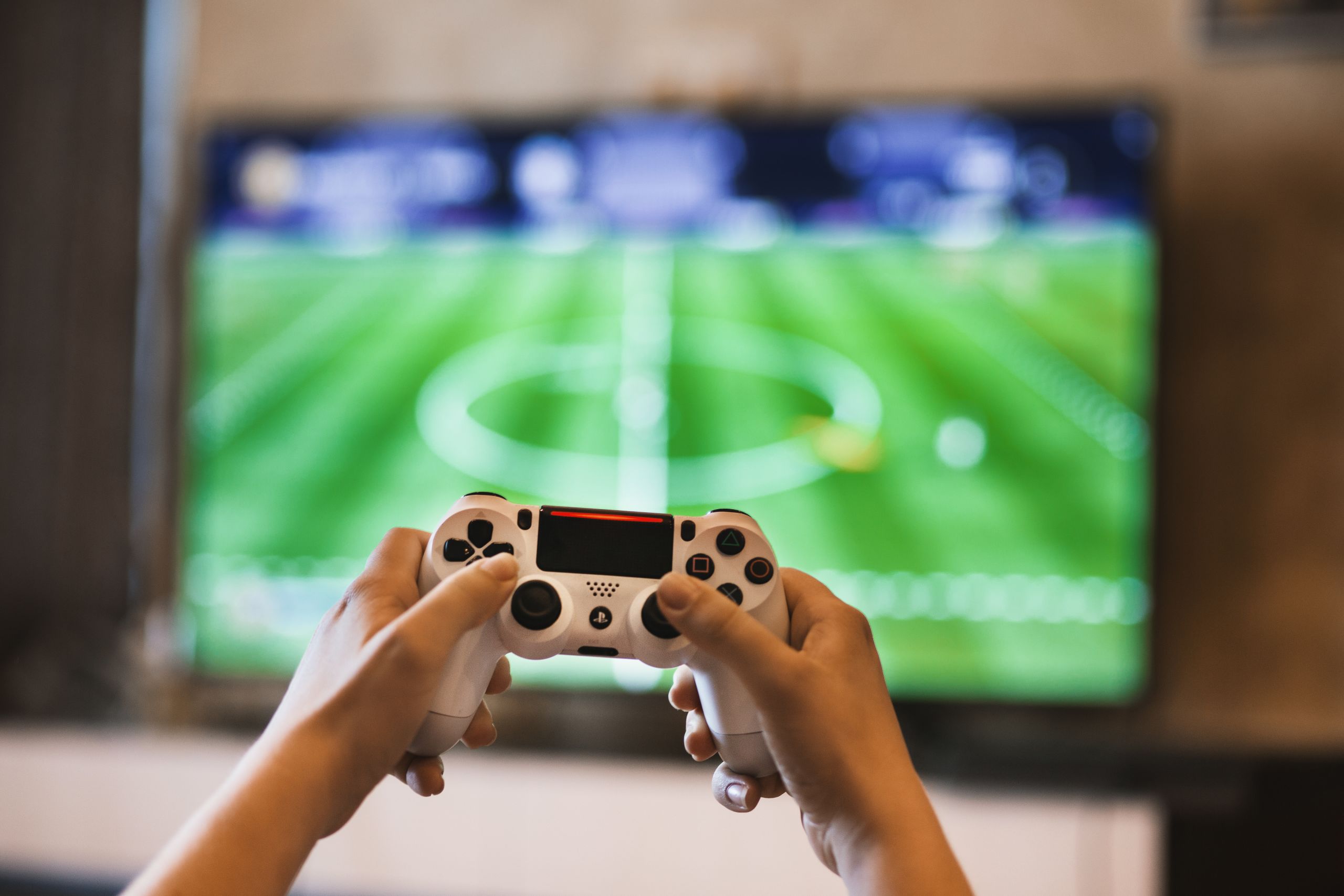
While live sport is reduced to crowdless arenas, we can always turn to cheer fuelled online sport environments
While live sport is reduced to crowdless arenas, we can always turn to cheer fuelled online sport environments
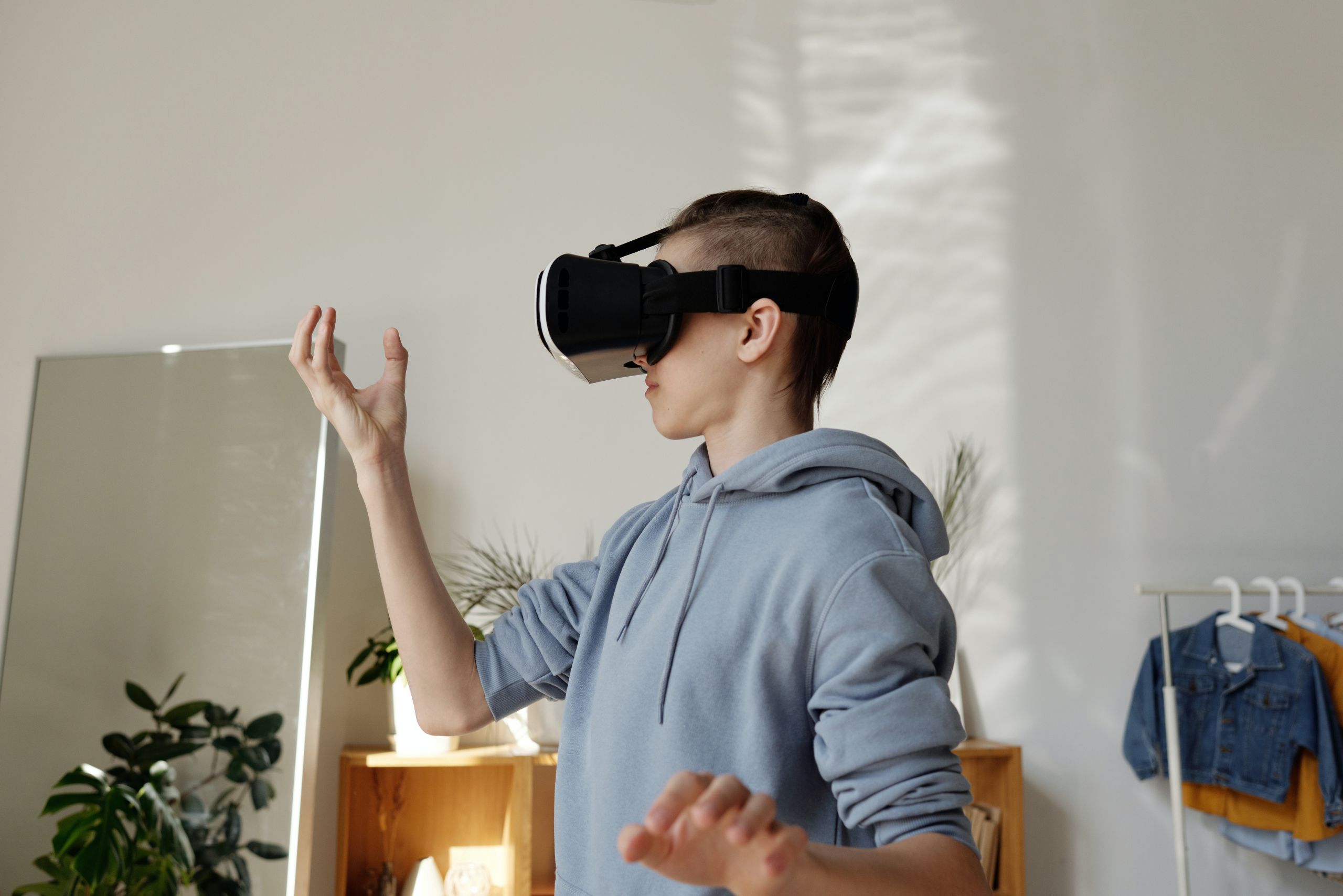
Virtual reality gaming will possibly be the most significant past time of incoming generations
Virtual reality gaming will possibly be the most significant past time of incoming generations
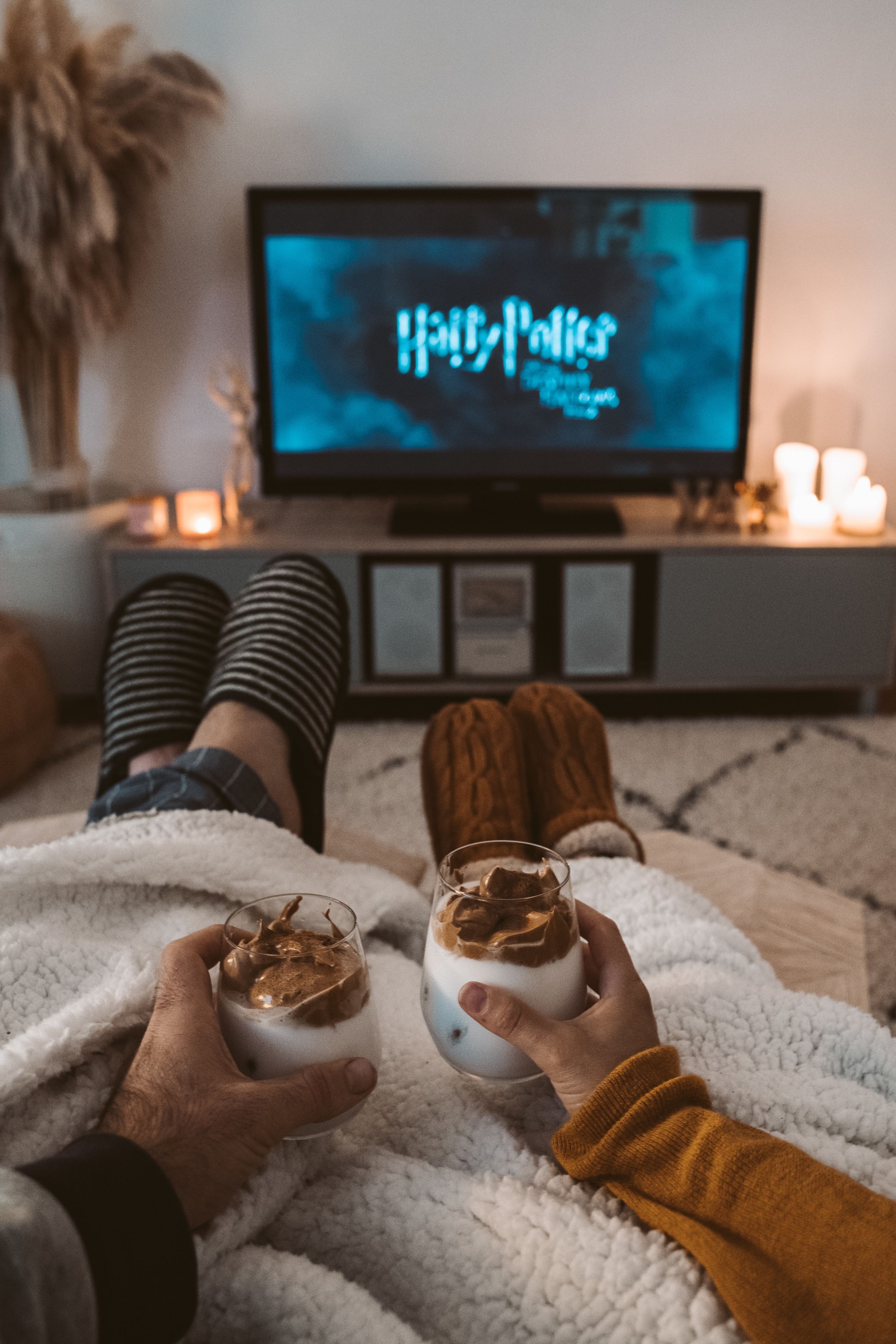
While movie theatres are closed, a home movie night can be maxed out with cosy slippers and goodies to share
While movie theatres are closed, a home movie night can be maxed out with cosy slippers and goodies to share
Now, if you are wondering that drama therapy is an intimate and personal thing, where patients and their therapists live out there catharsis in a physical setting, you are right. But as with everything, COVID-19 created a whole new demand and drama teachers and theatre therapists were forced to work online and quickly adapt to their new environment.
They discovered the use of online games, where participants create a sort of “second-life” - like environment and with the help of their avatars, they can re-live or confess their greatest fears or anxieties. Online drama therapies have been used since the beginning of the pandemic and professionals baffled how well it works with most people. As Monique Alexandra Hill, an online or digital therapist as she calls herself stated; “ as therapists and clients have been forced into the online therapy space, many of them are discovering what I have been convinced of all along: the online space is creative, imaginative, and full of possibility for connection.”
Art therapy is a powerful form of psychotherapy which includes dance, drama, drawing & painting and all creative state of art really. My son, who has behavioural problems hugely benefits from his Saturday art therapy classes, but part of its usefulness lies in the personality of the teacher. When they moved online during the pandemic, I was doubtful and feared that all benefit of that personal magic will be lost. But after the first session, I was convinced and surprised how easily my son transitioned to the new circumstances.
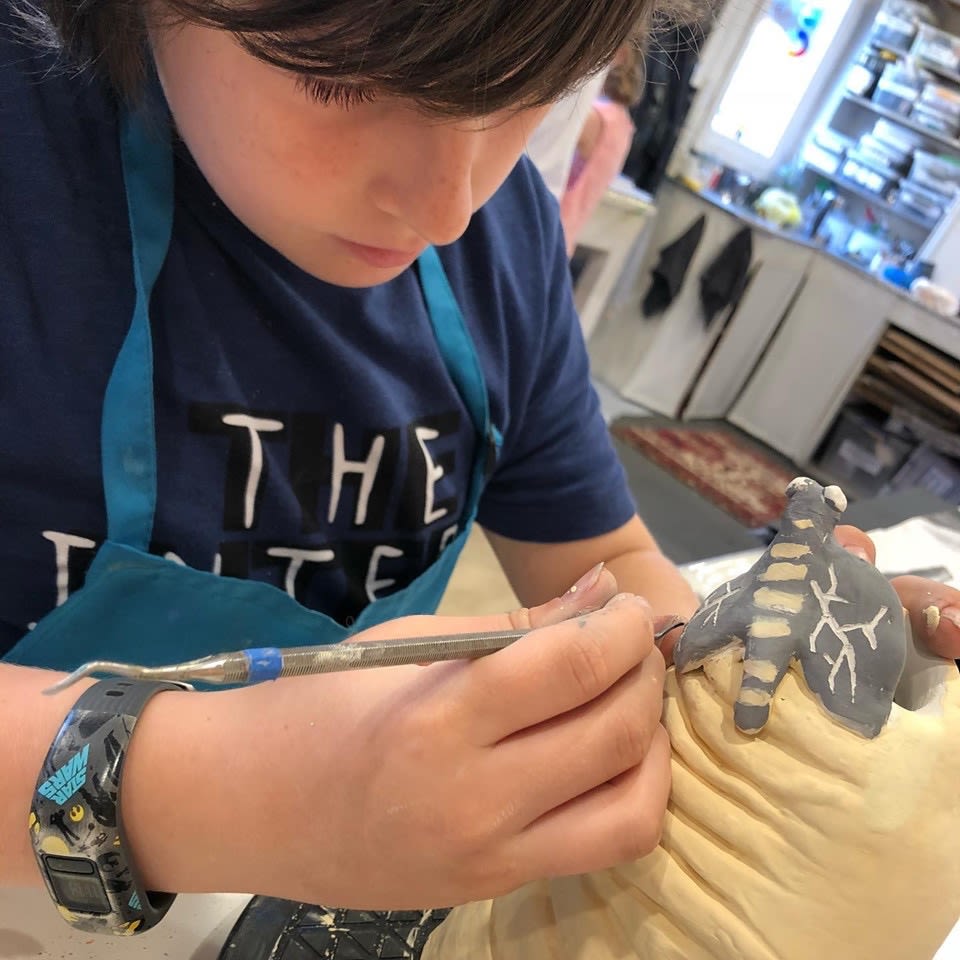
My son at art theraphy class
My son at art theraphy class
We don’t know what tomorrow will bring and going forward we can only guess what will fill the void left by social interaction. Some say that couch will be king, and we will see more online streaming media than ever before. Storytelling will be democratised as the creative community will invent themselves on channels like TikTok, YouTube or Facebook. Some say that as people can not socialize in person, VR possibly will be more popular. As for our mental health, I am sure that psychologists and counsellors will have a lot more work to do as the full effects of long months of social distancing are unknown at this stage. The world as we were living it before has been changed forever.
Until then, especially the people of Victoria who have been enduring one of the world’s most extended lockdown have to take care of their sanity. The best is if we follow the advice of the Medicine Sans Frontiers group and hope for the best.
If you or anyone you know needs help:
Lifeline on 13 11 14
Kids Helpline on 1800 551 800
MensLine Australia on 1300 789 978
Suicide Call Back Service on 1300 659 467
SANE Australia on 1800 18 7263
Beyond Blue on 1300 224 636
Headspace on 1800 650 890
QLife on 1800 184 527
Care Leavers Australasia Network (CLAN) on 1800 008 774
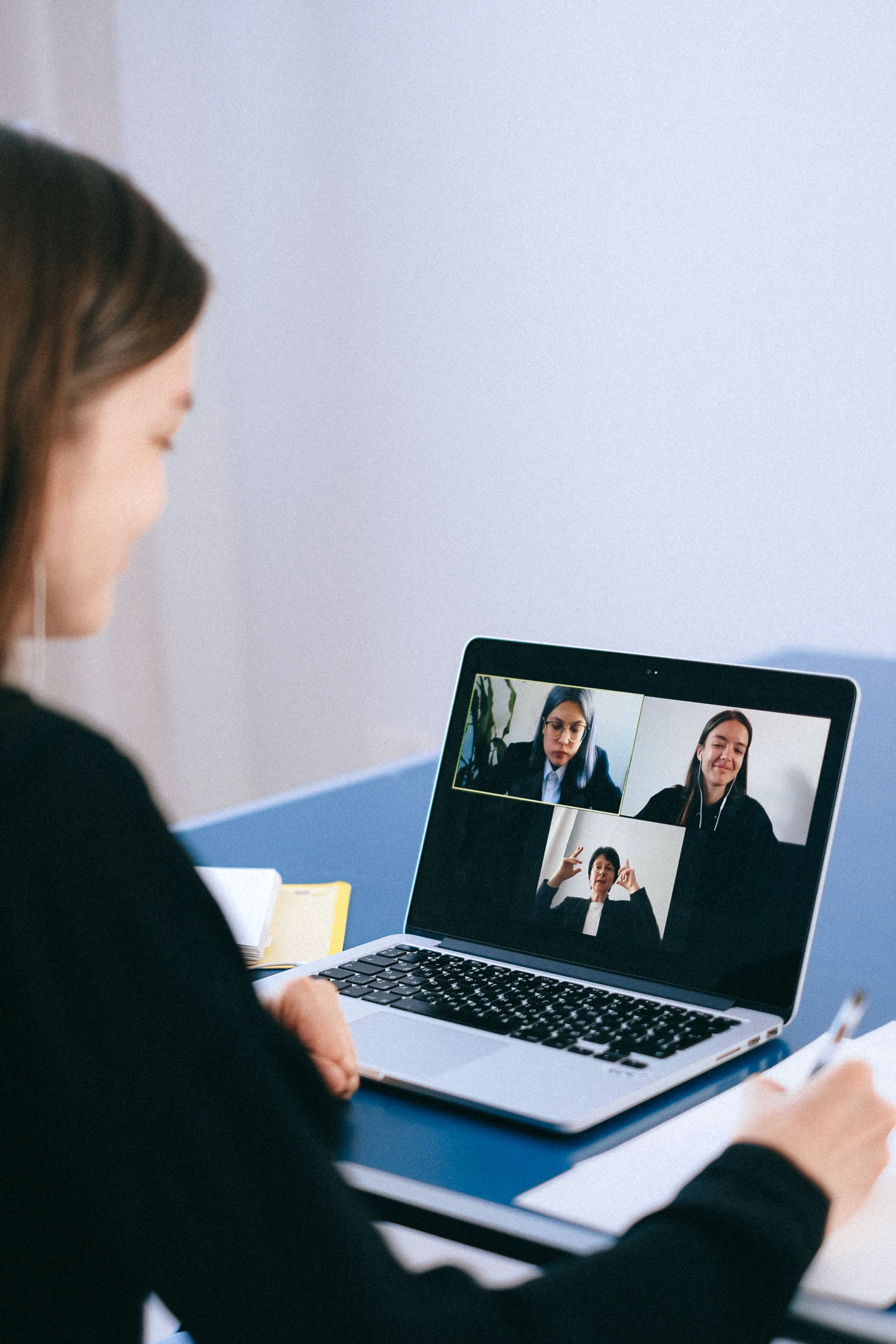
Teaching via online live sessions will probably stay for the better, even after the pandemic
Teaching via online live sessions will probably stay for the better, even after the pandemic
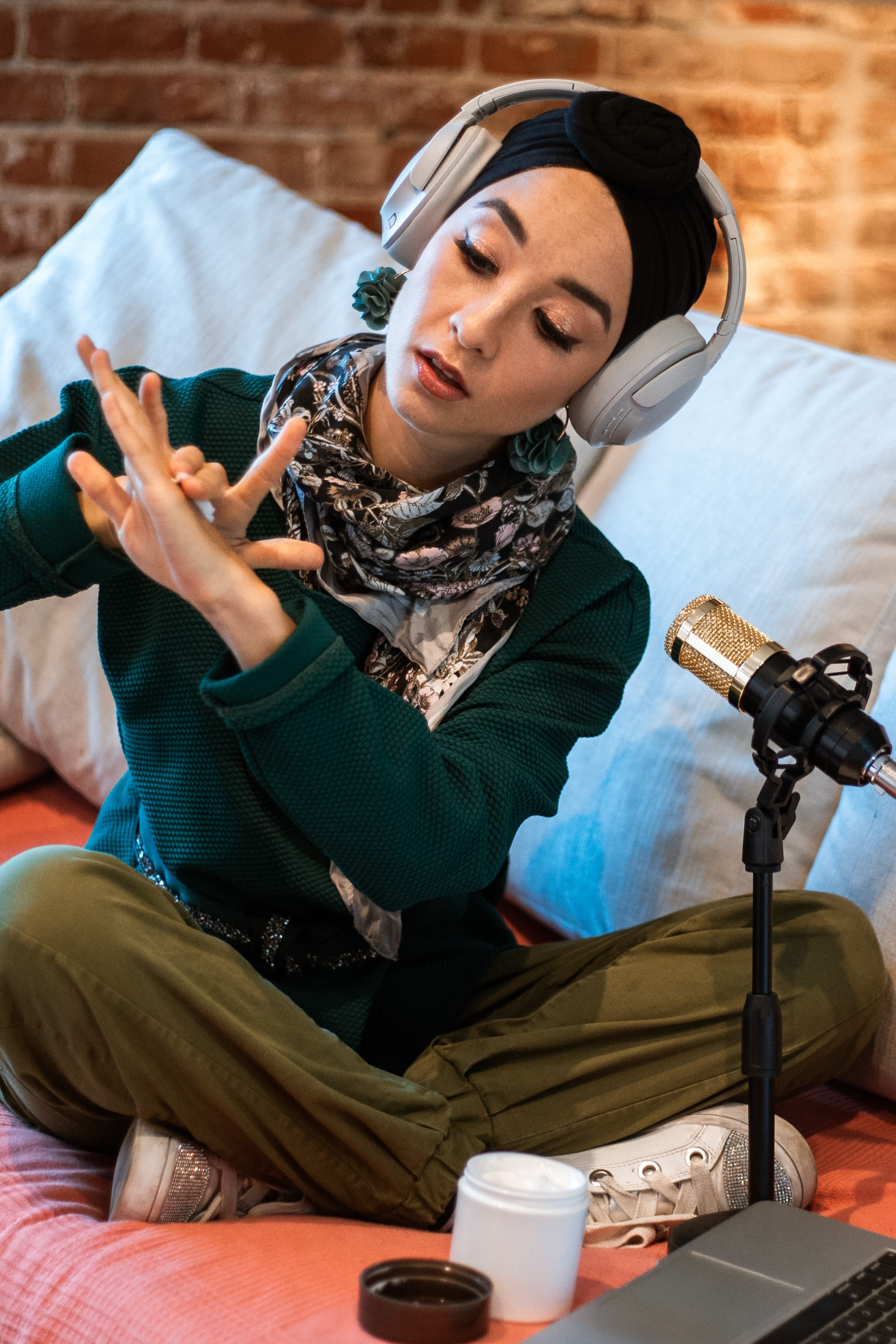
We will see more and more online performance in front of the laptop
We will see more and more online performance in front of the laptop
Written by
Judit Vajda
